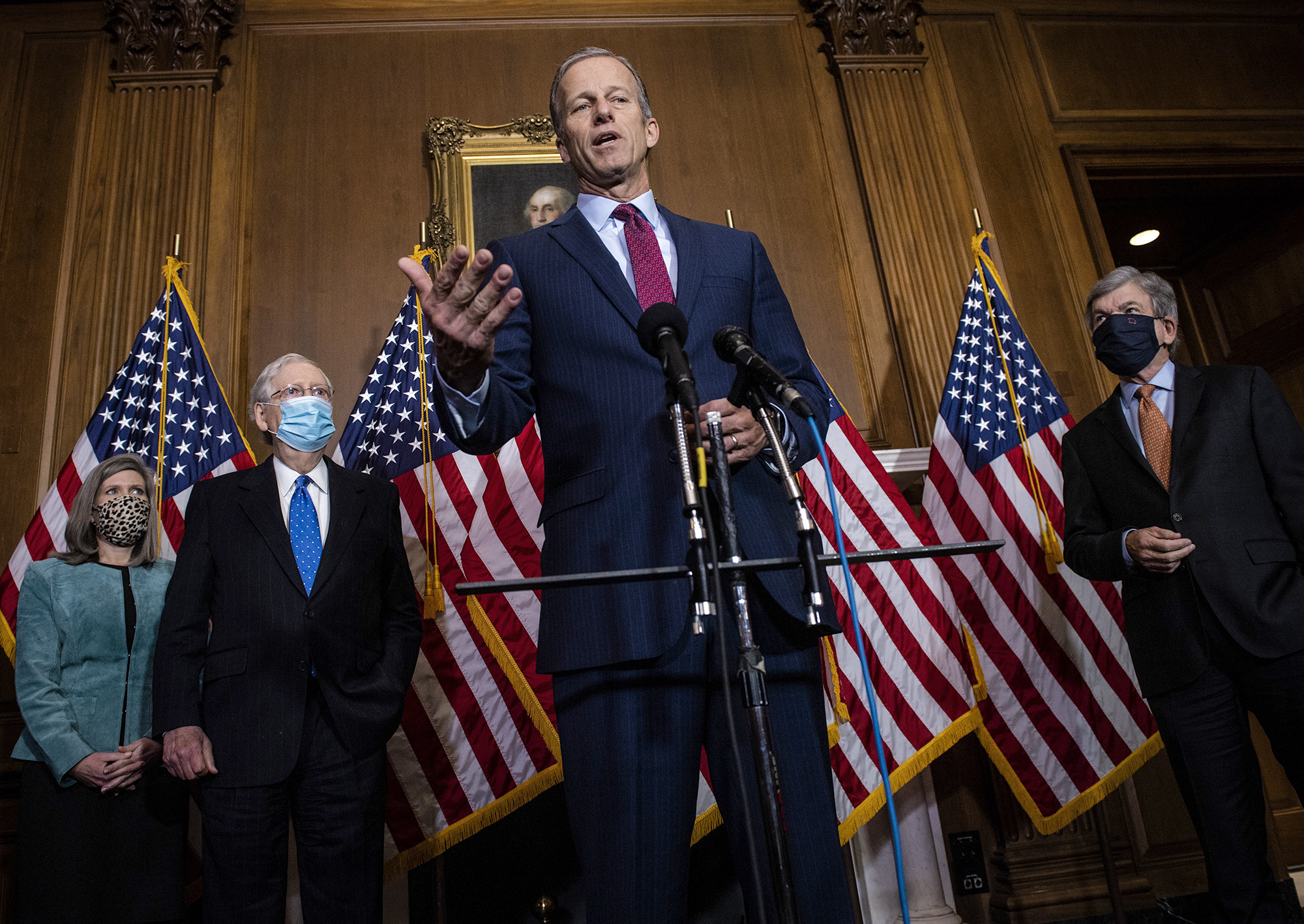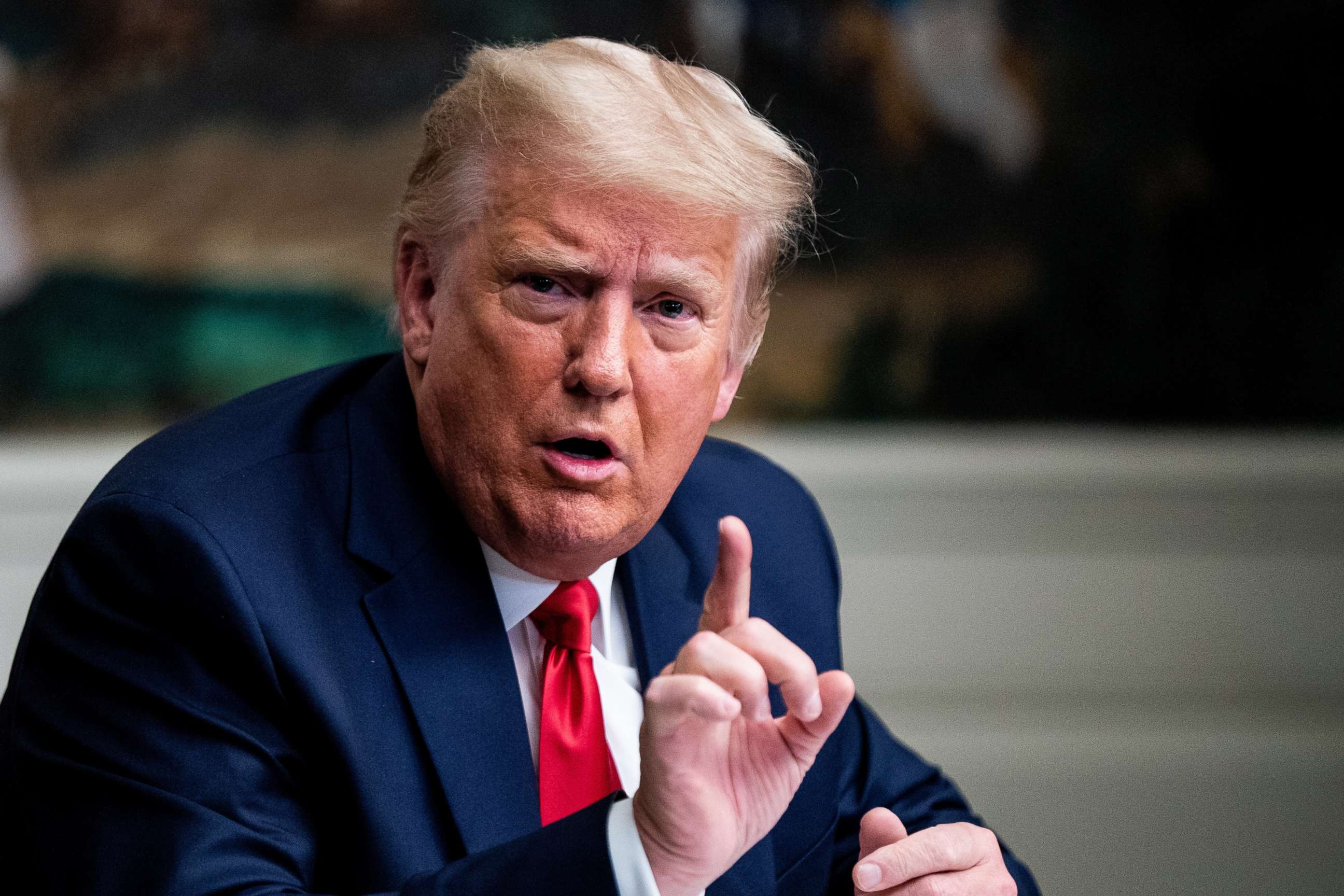Trump's veto threat on must-pass defense bill meets GOP resistance
The National Defense Authorization Act includes a pay raise for military troops.
Congressional Republicans rarely buck President Donald Trump, but his Tuesday night veto threat of a highly popular, must-pass defense bill -- which includes a 3% pay raise for U.S. troops -- has been met with GOP defiance.
The National Defense Authorization Act (NDAA) has passed Congress every year for 59 years, but the president announced that he intends to veto the measure unless lawmakers repeal a law that gives social media companies broad legal protections from lawsuits -- based on their users' posts -- and unchallenged latitude to police user content.
"(I)f the very dangerous & unfair Section 230 is not completely terminated as part of the National Defense Authorization Act (NDAA), I will be forced to unequivocally VETO the Bill when sent to the very beautiful Resolute desk," Trump wrote on Twitter, a platform that has censored his tweets that it deems false or misleading.

But the House and Senate Armed Services Committees were unbowed, approving on Wednesday a massive, bicameral NDAA compromise bill that panel members said included no such repeal of Section 230. The measure now heads to both chambers for certain approval.
Senate Armed Services Chair Jim Inhofe, R-Okla., told reporters that while he supports the call for tech services reforms, the provision "has nothing to do with the military."
"You can't do it in this bill. That's not a part of the bill," said Inhofe who added that he had conveyed that sentiment to the president.
"For 59 straight years, the NDAA has passed because Members of Congress and Presidents of both parties have set aside their own policy objectives and partisan preferences and put the needs of our military personnel and America's security first. The time has come to do that again," House Armed Services Committee Chairman Adam Smith, D-Wash., and Ranking Member Mac Thornberry, R-Texas, said in a joint statement.
The bill appears to be headed for near-certain passage in both chambers.
The Senate's second-most senior Republican, John Thune of South Dakota, said the fight over Section 230 reform, while supported by lawmakers in both parties, has no place on the defense bill and predicted the bill would pass despite the presidential threat.
"I think there's a lot of interest in reforming section 230. It's a Commerce Committee jurisdiction issue, and I hope that we have an opportunity to take that up -- but I don't think that the defense bill is a place to litigate that," Thune told ABC News. "But one way or the other, we have to pass the defense authorization bill."

The NDAA contains not only a pay raise for troops, but many other popular measures, like body armor improvements for women, coronavirus relief, military housing improvements and national security measures.
But frustration has been building for years among conservatives -- led by Trump -- who allege that social media giants are unfairly targeting their voices for censorship. Democrats, for their part, have cried foul when these same tech companies fail to take down or rein in false information and potentially harmful posts. President-elect Joe Biden has expressed a desire to repeal the law, a rare alignment with his campaign foe.
These companies say they're merely trying to fight misinformation while protecting a platform for free speech.
Still, lawmakers of all stripes said the defense bill is not the place to mount that fight.
Both chambers passed their respective defense measures with veto-proof majorities, the House by a vote of 295 to 125 and the Senate by 86 to 14.
"It passed out of here with 84 votes, you know, when it left the Senate," said Thune. "So my assumption is that it would have broad bipartisan support when it returns."
Senate Commerce Committee Chairman Roger Wicker, R-Miss., said he is actively in talks with the White House on reforms for Silicon Valley, adding that he did not think the president would ultimately follow through with his veto threat.

The Tuesday night threat was not Trump's first against the NDAA, though. Months ago, Trump said he would slap a veto on the bill if a provision authored by Sen. Elizabeth Warren, D-Mass., remained in the final House-Senate version of the bill. That amendment -- which is in the final bill, according to Inhofe -- gives the defense secretary three years to "remove all names, symbols, displays, monuments, and paraphernalia that honor or commemorate the Confederate States of America and anyone who voluntarily served it from all military bases and other assets of the Department of Defense," according to a Warren news release.
Despite the backlash from Congress, White House press secretary Kayleigh McEnany on Wednesday doubled down on the president's threat to veto the bill if it doesn't repeal the liability shield.
"There are real, grave concerns here and the president stands by that. And it also is worth noting that the president will always defend our military," said McEnany.




